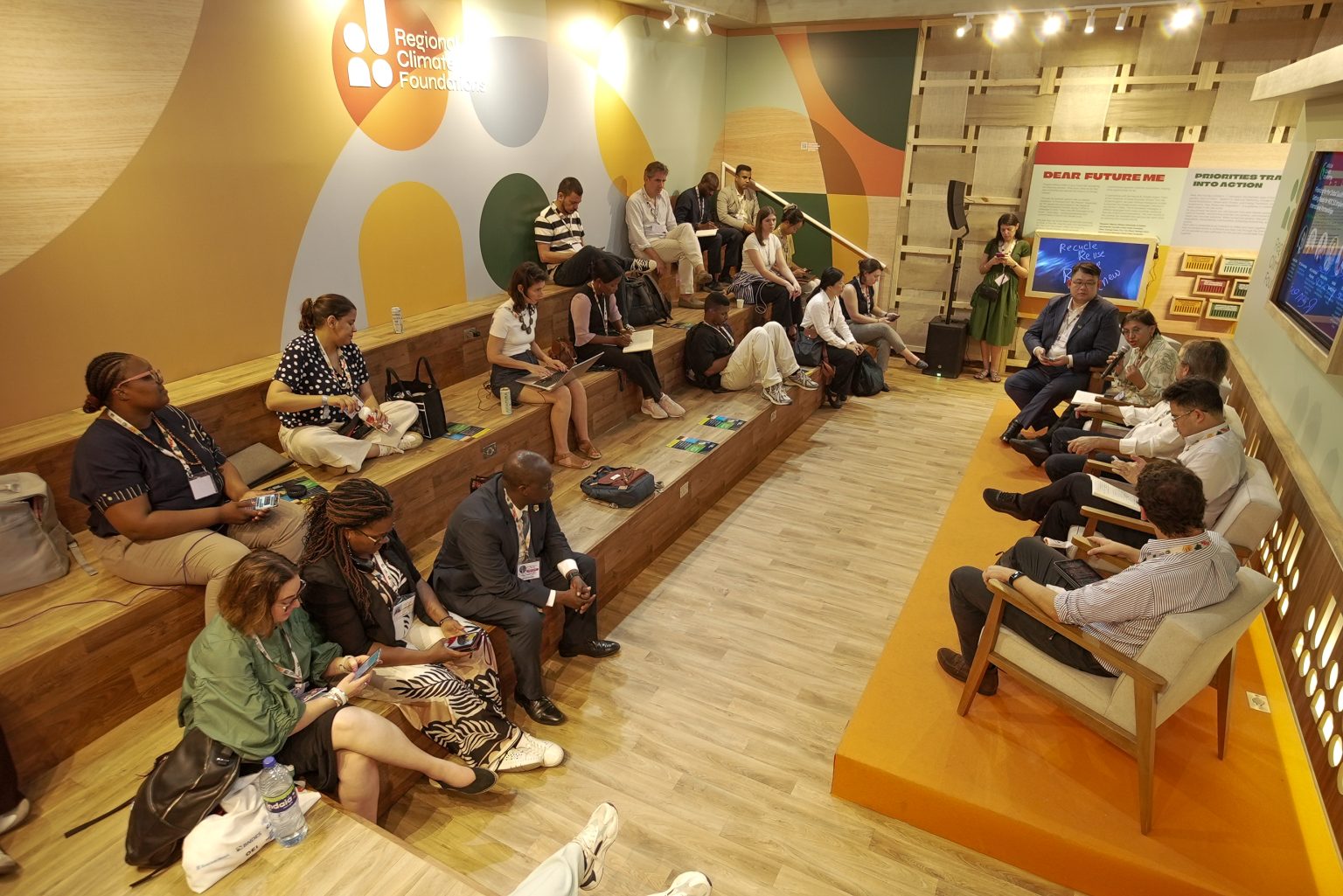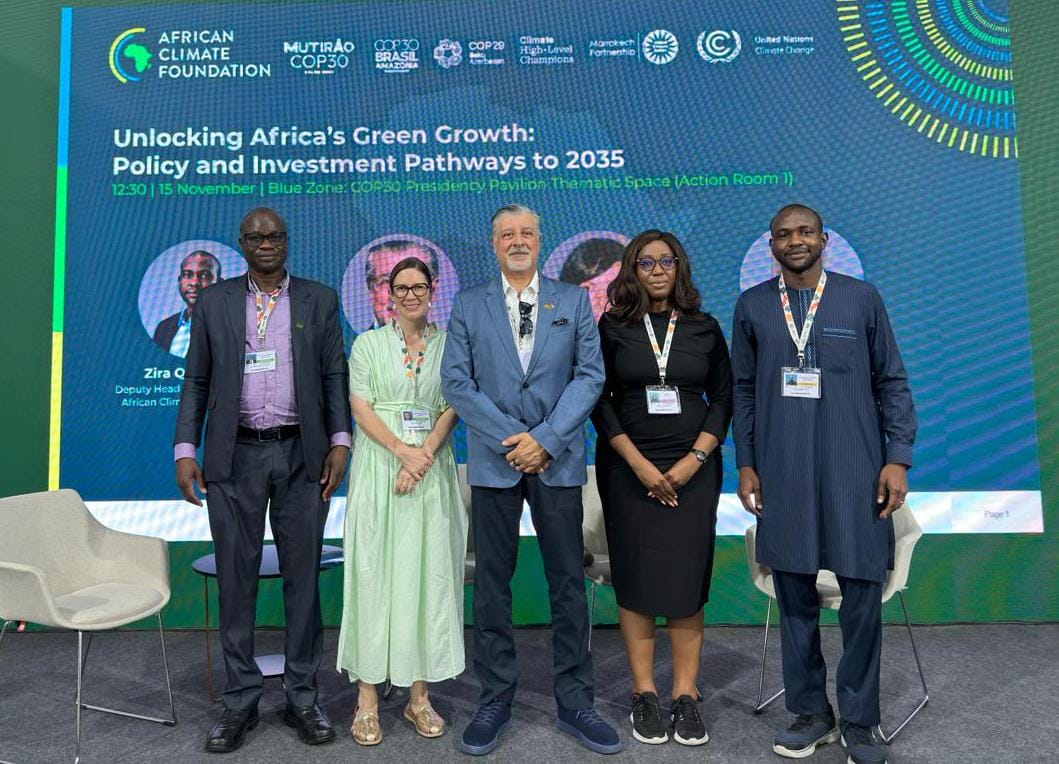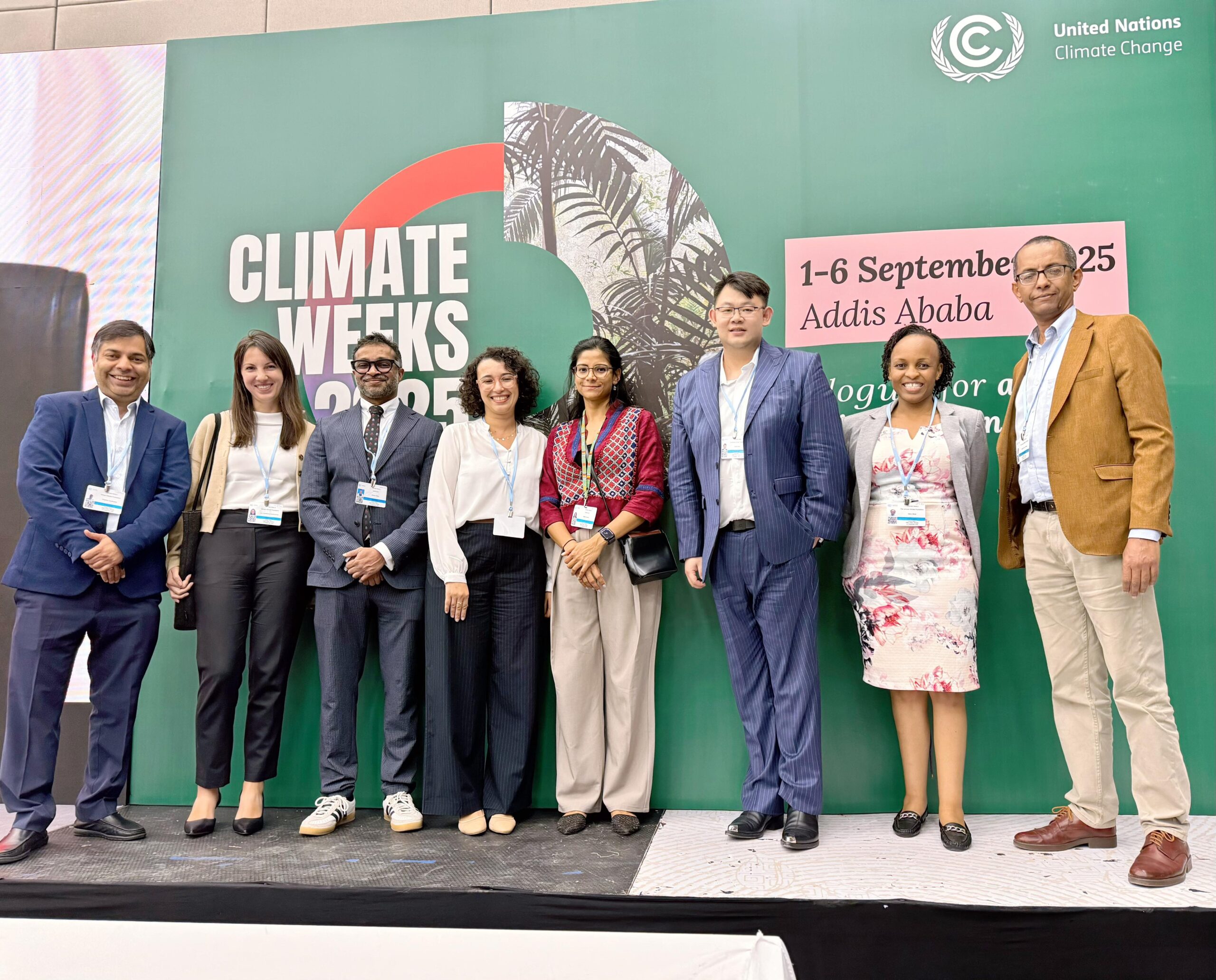At COP30, the African Climate Foundation (ACF) and the Government of Malawi (GoM) showcased their collaboration to strengthen Malawi’s adaptation and resilience agenda through the country-led Adaptation and Resilience Investment Platform (ARIP). The platform is grounded in a renewed MoU between the two parties, which commits both institutions to building the systems, coordination mechanisms, and investment architecture needed to advance climate-resilient development.
Our COP30 co-hosted event, highlighted how Malawi’s experience is helping demonstrate the value of country platforms in enabling governments to design, fund, and implement national adaptation and resilience strategies. It also focused on the enabling conditions required for successful platform establishment and long-term execution.
In his opening remarks, Pablo Abba Viera Samper of the NDC Partnership Support Unit, framed country platforms as critical vehicles for aligning partners behind national priorities.
This followed by a presentation around Malawi’s country platform experience. Deputy Chief Secretary to the President and Cabinet, Stuart Ligomeka, outlined progress made under the renewed MoU. He briefly described the Adaptation and Resilience Project Preparedness Clinics, conducted in 2025 with ACF support, which were designed to help build an investment-ready pipeline for the platform. Through this process, 26 projects were identified across key sectors.
Ligomeka explained how these projects had undergone external validation to refine their design and ensure alignment with national priorities; an example of the kind of systematic preparation needed for country platforms to unlock large-scale climate and development finance.
And it was Gaia Larsen from the World Resources Institute who, during the panel discussion, highlighted the importance of good platform design; explaining platforms must be broad enough to accommodate different types of projects yet sufficiently focused to ensure progress. She stressed that countries must prioritise projects clearly, an essential step that is often overlooked but necessary for effective implementation.
A key remark was made by Patricia Ellen da Silva of Systemiq who underscored that adaptation finance is at a breaking point, stressing that adaptation finance will basically make or break this COP. She noted that investments in adaptation typically generate 4–10% returns, with some major infrastructure and nature-based solutions achieving returns of up to 25%, while significant agricultural losses remain uninsured.
As the session closed, Ligomeka thanked the ACF for its continued partnership; an acknowledgment echoed by HE Dr Jean Mathanga, Minister of Natural Resources, Energy and Mining. The COP30 event reaffirmed the shared commitment of the ACF and the Government of Malawi to advancing climate resilience and sustainable growth. Both institutions will continue driving forward the establishment and operationalisation of Malawi’s Adaptation and Resilience Investment Platform, helping build a climate-resilient and prosperous future for all.



